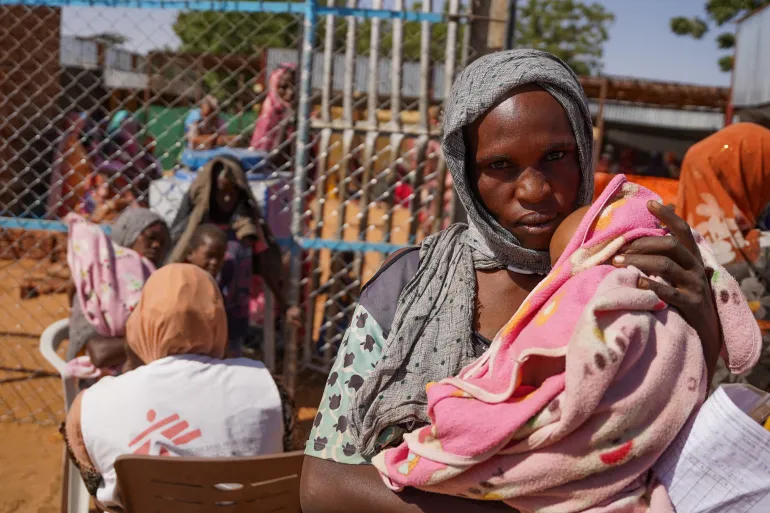CIVILIANS in Sudan’s North Darfur’s capital, el-Fasher, and surrounding towns are starving.
The paramilitary Rapid Support Forces (RSF) have imposed a siege on them for about a year, yet they managed to forestall an invasion thanks to the Joint Forces – an array of local armed factions backed by the army.
The besieged civilians are now pleading for help, but some fear the army has neither the political will nor the capability to rescue civilians, say experts, local journalists and civilians.
The nearly 500,000 civilians in Zamzam camp – the largest refugee camp in North Darfur – are already suffering from famine, according to the United Nations global hunger monitor, the Integrated Food Security Phase Classification (IPC).
Residents in Zamzam told Al Jazeera the army dropped some food aid from its warplanes earlier this week, but said supplies will run out in a few days.
“All Sudanese military and security agencies should move towards [North Darfur] to ensure the flow of food, medicine and humanitarian supplies to besieged civilians,” said Mohamed Khamis Doda, the spokesperson for Zamzam camp.
“There must also be an immediate intervention of [humanitarian organisations],” he added.
Most people in the camp, and in el-Fasher, are from sedentary farming communities, known as “non-Arabs”, while most of the fighters attacking them come from the nomadic or pastoralist “Arab” tribes the RSF typically recruits from.
Since April 2023, the RSF has been fighting Sudan’s army in a catastrophic civil war that has triggered the world’s worst humanitarian crisis by most measures.
The RSF quickly captured four out of five Darfur states – South, East, West and Central Darfur – in 2023. North Darfur was the holdout.
The UN accuses both sides of atrocities but says the RSF has systematically raped women and girls and “disappeared” thousands of civilians.
Many of these crimes have been committed in Darfur, an RSF stronghold nearly the size of France.
In April 2024, the RSF besieged North Darfur’s capital, el-Fasher, after many local armed factions – part of the Joint Forces – sided with the army, despite having formed in the early 2000s in rebellion against the central government’s marginalisation of their tribes and region.
Since the army captured the capital, Khartoum, in March, experts and civilians from Darfur worry that it will neglect the region again by prioritising its control over central and northern Sudan.
“At the moment, I’m not sure if the army has the political will and resources to continue to fight [in Darfur],” said Jawhara Kanu, an independent Sudan expert originally from North Darfur.
A fighter loyal to the army patrols a market area in Khartoum on March 24, 2025.
Kanu added that over the past two years, there has been a growing number of personalities with large followings inciting hatred on social media against civilians in Darfur, blaming everyone from the region for the RSF’s criminality.







